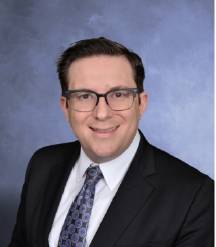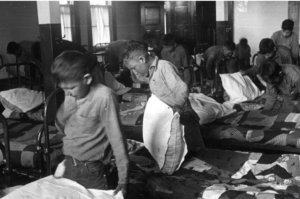
Rabbi Grossman, Head of School
There is much to celebrate this week. As Jews in Quebec, the past days have been filled with bounty and blessing. COVID cases are at record lows, and vaccination rates are high. The province and its businesses are opening up, and restrictions are down. We are seeing our friends again, and our synagogues and clergy are preparing to welcome their flocks back. The weather has been glorious, if a bit hot. The war in Israel is over, and the hateful local protests, as of last weekend, seem to have run out of steam.
At school, our students are joyful. They are rightfully proud to have made it through heretofore the most challenging year of their lives. A triumph. Summer vacation is almost upon us, and children are returning to camp and play.
The Talmud preserves many blessing to be pronounced on such happy occasions: Baruch hatov v’ha meitiv, Blessed is God who is good and does good; Baruch shehecheyanu v’kimanu v’higianu lazman hazzeh, Blessed is God who has kept us alive, sustained us, and allowed us to reach this good time; Baruch ha-gomel l’chayavim tovot she-g’malani kol tov, Blessed is God who has rewarded me with goodness. There are more, and we should count our blessings.
All of these good tidings should be recognized with joy and gratitude. And at the same time, we must stop to acknowledge our fellow citizens who are not celebrating this week, and whose suffering must not go unnoticed.

Indigenous children at a residential school in 1950
The announcement a little over a week ago that the bodies of 215 children had been found in an unmarked grave on the grounds of the former Kamloops Indian Residential School in British Columbia has shaken me to the core. With all of the bustle of the end of the school year, I feel compelled to write and respond to this tragedy on behalf of the Akiva community. I do not feel qualified to address this issue as a Canadian; I will leave that to others far better versed than I in the history of our country and its fraught relationship with its indigenous peoples. Rather, I wish to address this as a Jew and an educator.
The discovery of any mass grave must spark horror in the hearts of Jewish people. To say that it rips open a wound would imply that the trauma of what happened to our grandparents has healed. It has not. The Holocaust is not part of our history, it is part of our memory and there are still survivors among us.
Likewise, the abuse and neglect that led to the deaths of these children took place in our own lifetimes; according to a BBC report, there is a child in that grave who died in 1971, the year I was born.
I invoke the Holocaust not to compare the suffering of our people to that of another, or to make this about us. Rather, the circumstances around this national tragedy provide us the opportunity as a community to express true empathy. Sympathy comes from a place of privilege; sympathy says: I extend my heart to you because I am blessed not to be able to understand your pain, and there but for the grace of God go I. By contrast, empathy exists between equals. Empathy is saying to my neighbour that my experience allows me to understand (though never fully) the pain you are going through in ways that others cannot. Empathy says, “I have been there,” or in the words of Psalm 91:15, “imo anochi b’tzarah—I am with you in your sorrow.”
The details of the Kamloops story provide all too many points of resonance, and opportunities for empathy. An investigation by the Truth and Reconciliation Committee exhumed these quotes from members of the Indigenous community:
“Survivors talked about children who suddenly went missing. Some talked about children who went missing into mass burial sites. Other survivors spoke of infants … taken from their mothers at birth and thrown into furnaces…”
The echoes of the Shoah can be heard in their words. And numbers: it is estimated some 6,000 children died while at residential schools.
And then there is the shared experience of historical denial. In speaking of the existence of the mass graves, First Nations National Chief Perry Bellegarde recalled, “Survivors have been saying this for years and years – but nobody believed them.”
The Kamloops Residential School was established in Canada in the late 1800’s and continued to operate for over a century. First Nation children were forcibly separated from their families and sent to these institutions in an attempt to rob them of their heritage and assimilate them into the mainstream religion and culture. At the same time, Jewish children in Europe were still being kidnapped and forced to abandon their faith, as in the famous case of six-year-old Edgardo Mortara who was abducted in Italy in 1857. This unconscionable practice, experienced by Jews since antiquity, and by Indigenous Canadians since the 17th century, is another sad point of empathy.
As a rabbi and head of school entrusted with the souls of over 300 children, hearing of abuse and murder of students under the care of clergy and educators brings indescribable pain.
In the verse I quoted above, the psalmist continues:
imo anochi b’tzarah –I am with you in your sorrow
When they call on me, I will answer them
I will rescue them and make certain they are honoured
It is our responsibility to answer the call of the Tk’emlúps te Secwépemc community and all those among the First Nations who are mourning their dead these weeks. In articles and editorials published this past weekend, First Nations leaders called for support. We must answer them. At Akiva, we are reaching out to the Indigenous community to find ways we can be there for them, with empathy, in their time of need.
We will make certain that they, and the memories of their children, are honoured.



